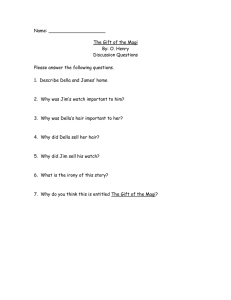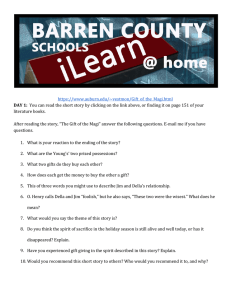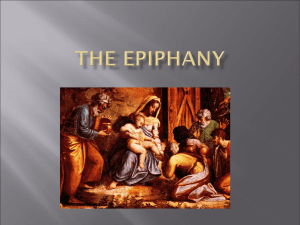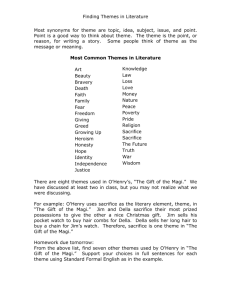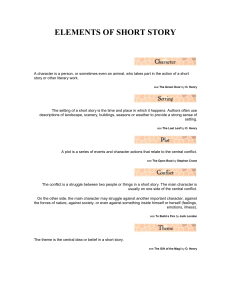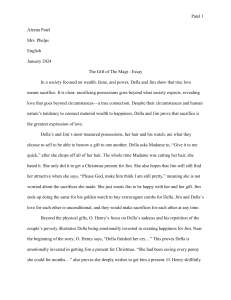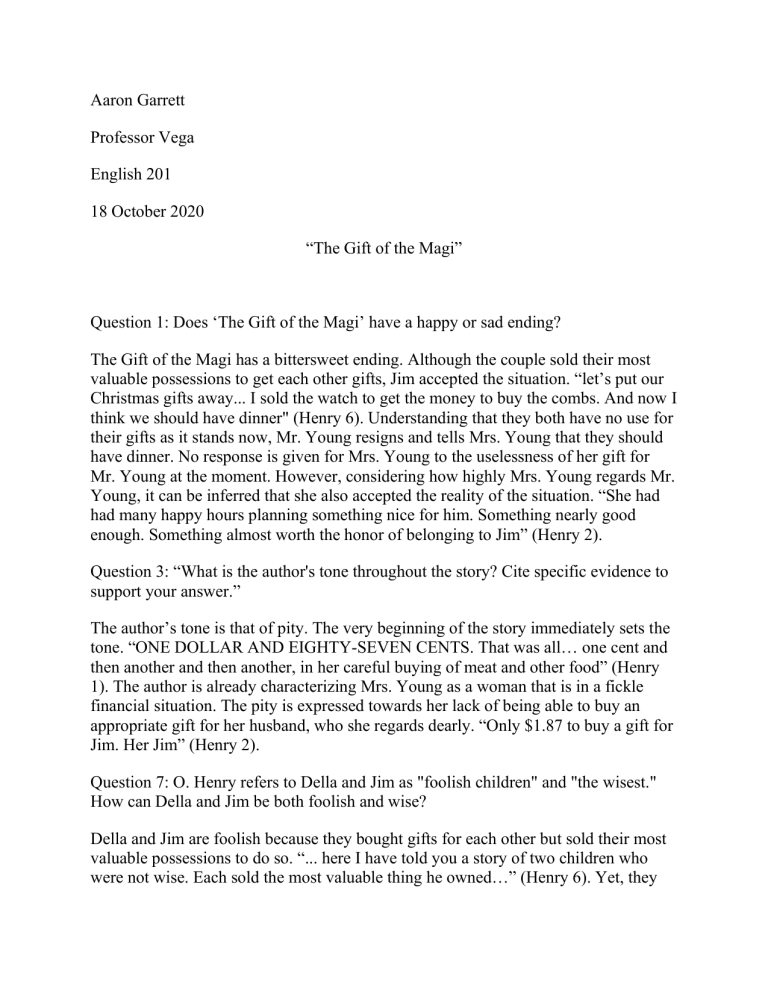
Aaron Garrett Professor Vega English 201 18 October 2020 “The Gift of the Magi” Question 1: Does ‘The Gift of the Magi’ have a happy or sad ending? The Gift of the Magi has a bittersweet ending. Although the couple sold their most valuable possessions to get each other gifts, Jim accepted the situation. “let’s put our Christmas gifts away... I sold the watch to get the money to buy the combs. And now I think we should have dinner" (Henry 6). Understanding that they both have no use for their gifts as it stands now, Mr. Young resigns and tells Mrs. Young that they should have dinner. No response is given for Mrs. Young to the uselessness of her gift for Mr. Young at the moment. However, considering how highly Mrs. Young regards Mr. Young, it can be inferred that she also accepted the reality of the situation. “She had had many happy hours planning something nice for him. Something nearly good enough. Something almost worth the honor of belonging to Jim” (Henry 2). Question 3: “What is the author's tone throughout the story? Cite specific evidence to support your answer.” The author’s tone is that of pity. The very beginning of the story immediately sets the tone. “ONE DOLLAR AND EIGHTY-SEVEN CENTS. That was all… one cent and then another and then another, in her careful buying of meat and other food” (Henry 1). The author is already characterizing Mrs. Young as a woman that is in a fickle financial situation. The pity is expressed towards her lack of being able to buy an appropriate gift for her husband, who she regards dearly. “Only $1.87 to buy a gift for Jim. Her Jim” (Henry 2). Question 7: O. Henry refers to Della and Jim as "foolish children" and "the wisest." How can Della and Jim be both foolish and wise? Della and Jim are foolish because they bought gifts for each other but sold their most valuable possessions to do so. “... here I have told you a story of two children who were not wise. Each sold the most valuable thing he owned…” (Henry 6). Yet, they are wise because even though they sold their most valuable possessions, the love that they had for each other was prevalent. The fact that they both sold their most valuable possessions for each other shows the selflessness of their actions and the extent of their love.
